This blog has been paid for by and created in partnership with Pfizer UK.
The #JoinTheFight campaign is sponsored by Pfizer UK.
When my now 11 year old was 3 she had a terrible case of chicken pox. She had spots everywhere, even on her eyelids! She eventually recovered, but it was a long two weeks of her scratching and picking spots which led to several getting quite badly infected. The skin around the spot was swollen, bright red and hot. I didn’t want it to get worse as I know how fast skin infections can progress so we went to the doctors and were given a course of antibiotics. Luckily the infection cleared up and apart from some scarring she recovered perfectly. If the antibiotics hadn’t worked I dread to think what could’ve happened. As a family we’ve been lucky enough to only need antibiotics a few times, but on each occasion they’ve started to work within 24 hours and saved a lot of suffering and prolonged illnesses.
Antibiotics have saved millions of lives since they were first discovered, without them people would be much more likely to die from what we now see as treatable infections. A world without antibiotics would be very different to what we have today.
What is Antimicrobial Resistance?
Antimicrobial resistance (AMR) is a long name for the rise of Superbugs and is one of the biggest threats to global public health today. AMR occurs when micro-organisms which cause infection survive exposure to medicine that would usually kill them or stop them growing. This creates superbugs!
Bacteria becoming resistant to antibiotics is a natural process, but humans misusing antibiotics is speeding up the process.
The World Health Organization characterises AMR as one of the biggest threats to global public health today. UK’s outgoing Chief Medical Officer, Dame Sally Davies said Superbugs “could kill us before climate change does”
How can you join the fight against Superbugs?
Preventing sickness is a really important way to reduce the amount of antibiotics people need to use and therefore reduce the possibility of antibiotic resistance developing.
Did you know your skin is covered in germs? Not all germs make you poorly but some such as E.coli, Salmonella or certain viruses can if they get inside your body.
Skin is an important barrier as it protects the inside of the body from potential pathogens. One way germs can enter the body is from hands touching food which is then eaten or people putting their fingers in their mouth. Germs can get onto hands when people touch a contaminated object or shake or hold hands with someone.
Why is hand washing important?
Hand washing is a hugely important in helping people stay healthy and preventing the spread of infection to other people. Proper hand washing removes germs from skin and can help prevent all kinds of infections from tummy bugs to eye and skin infections.
Even if you think your hands are clean, you probably touch your nose and mouth all the time without even noticing, both of which are home to lots of bacteria!
Hand Washing Activity 1
This activity demonstrates how easily germs spread between people and why it’s important to wash hands thoroughly with soap and water.
What you’ll need for this activity:
Hand lotion
Different coloured glitter – we used biodegradable glitter
Wet wipe
Water
Soap
You need a few children for this activity to be most effective. Each child needs to rub hand lotion into the palms of their hands and then sprinkle glitter over the top.
Stage 1 – How easily do germs spread between people?
Make sure each hand has a thin coating of glitter.
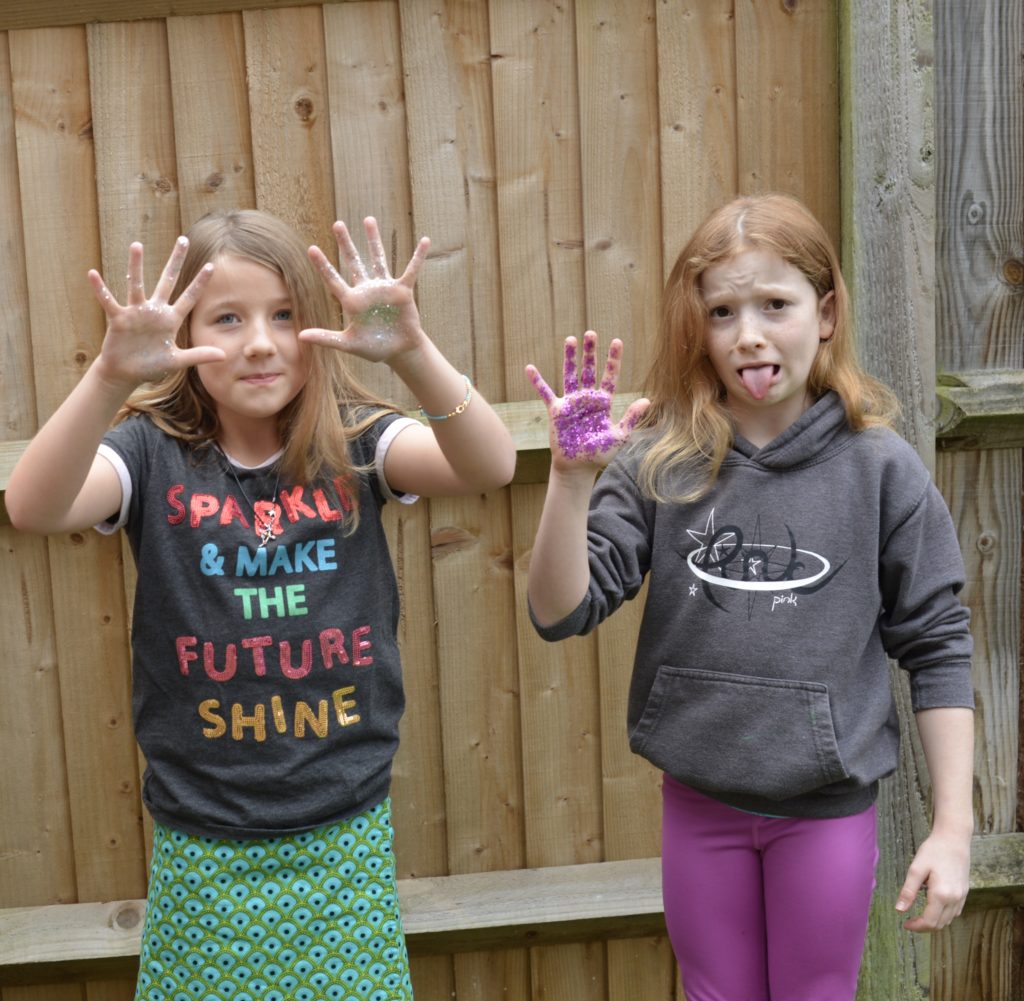
Each child should shake hands with all the others.
When everyone has shaken hands ask the children to look at their hands. How many different colours of glitter can they spot?
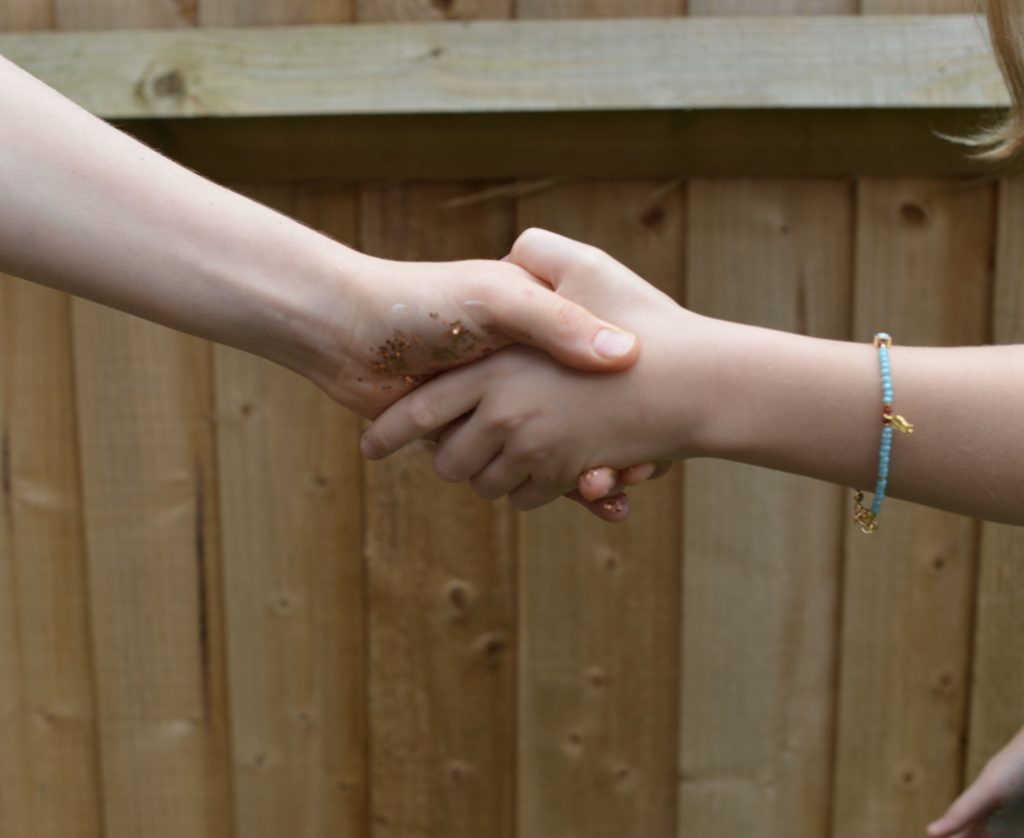
Imagine that the glitter is germs. If there’s a stomach bug in there it has potentially spread to everyone!
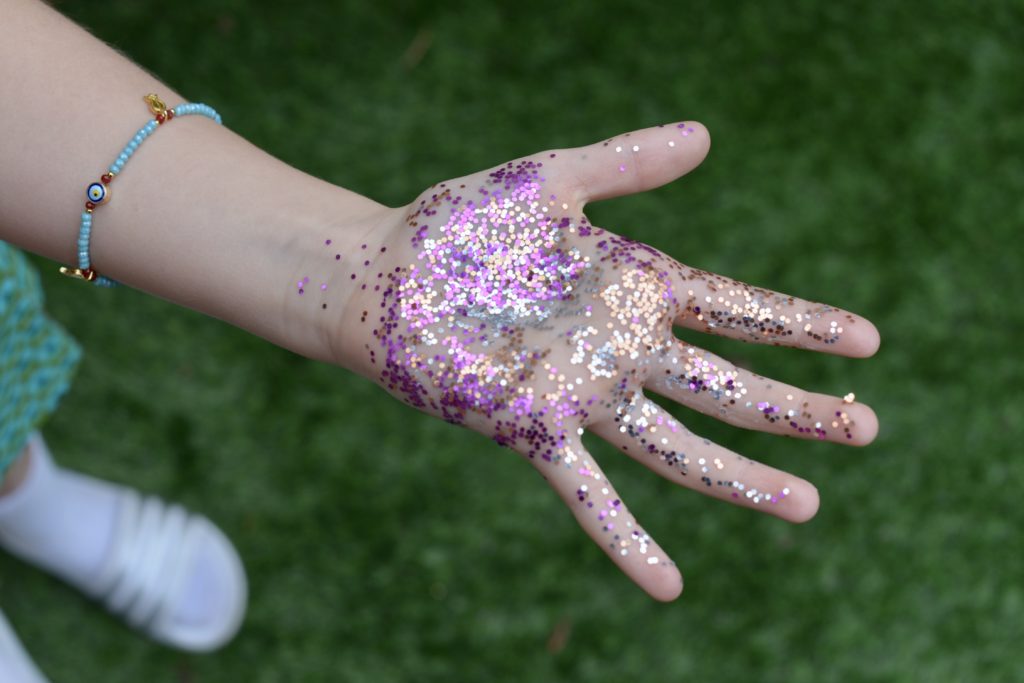
Stage 2 – What’s the most effective way to wash hands
Split the group into three.
Group 1 should use a wet wipe to clean their hands. They shouldn’t scrub, just use it as they would normally.
Group 2 use just water for 20 seconds.
Group 3 use water and soap for 20 seconds.
Group 3 probably have the cleanest hands!
Washing hands with soap and water is generally thought to be the best way to remove germs from hands and help prevent the spread of infection.
Handwashing not only prevents sickness and reduces the amount of antibiotics needed to treat people. It also helps stop people getting sick from bacteria that are already antibiotic-resistant.
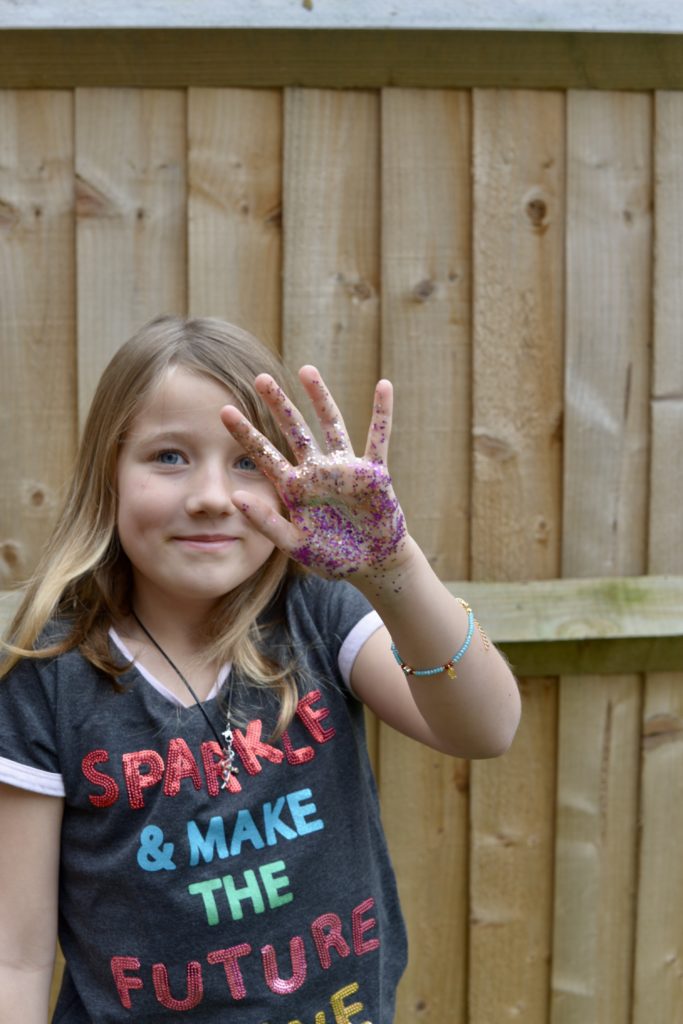
How long should you wash your hands for?
According to the NHS website you should wash your hands for at least 20 seconds!
Hand Washing Activity 2
Where are the Germs?
Another visual way to show children how easily germs can spread is by putting a little washable paint on your hands and then walking around the house as normal. Open a door using the handle, put your hands on a kitchen counter, open a packet of food ( don’t touch the food ).
Again, this shows very visually how important hand washing really is, and how easily germs can spread between people.
What else can you do?
Keep the whole family’s vaccinations up to date, and aways use antibiotics as instructed.
For more information visit:
https://www.pfizer.co.uk/tackling-rise-antimicrobial-resistance https://www.who.int/news-room/fact-sheets/detail/antibiotic-resistance
PP-PFE-GBR-2136
Date of prep: Nov 2019

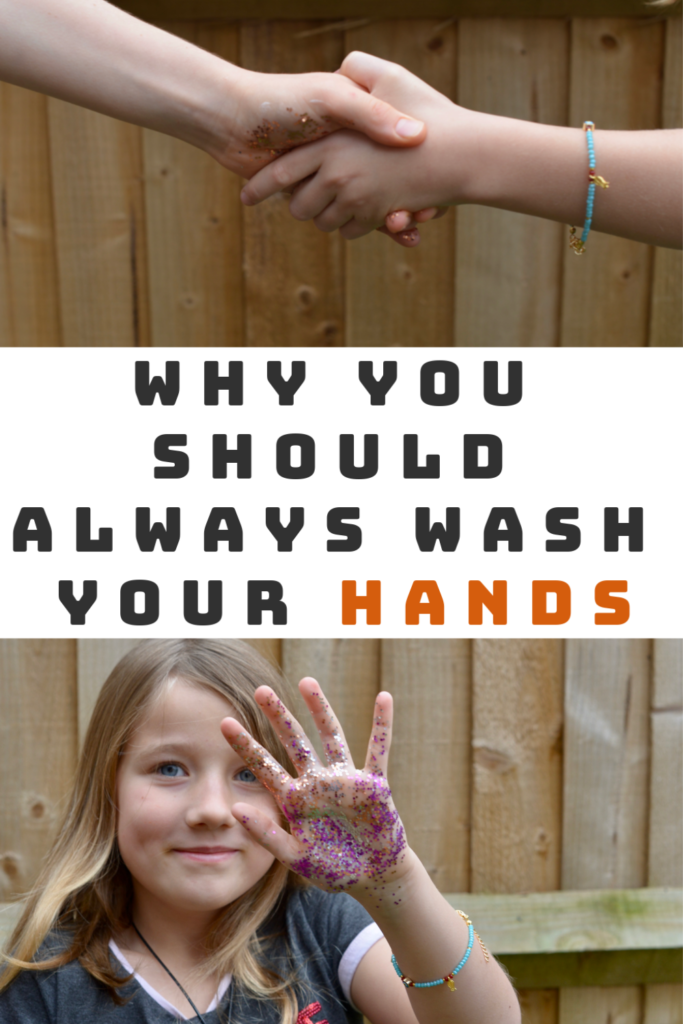
Last Updated on November 19, 2019 by Emma Vanstone
